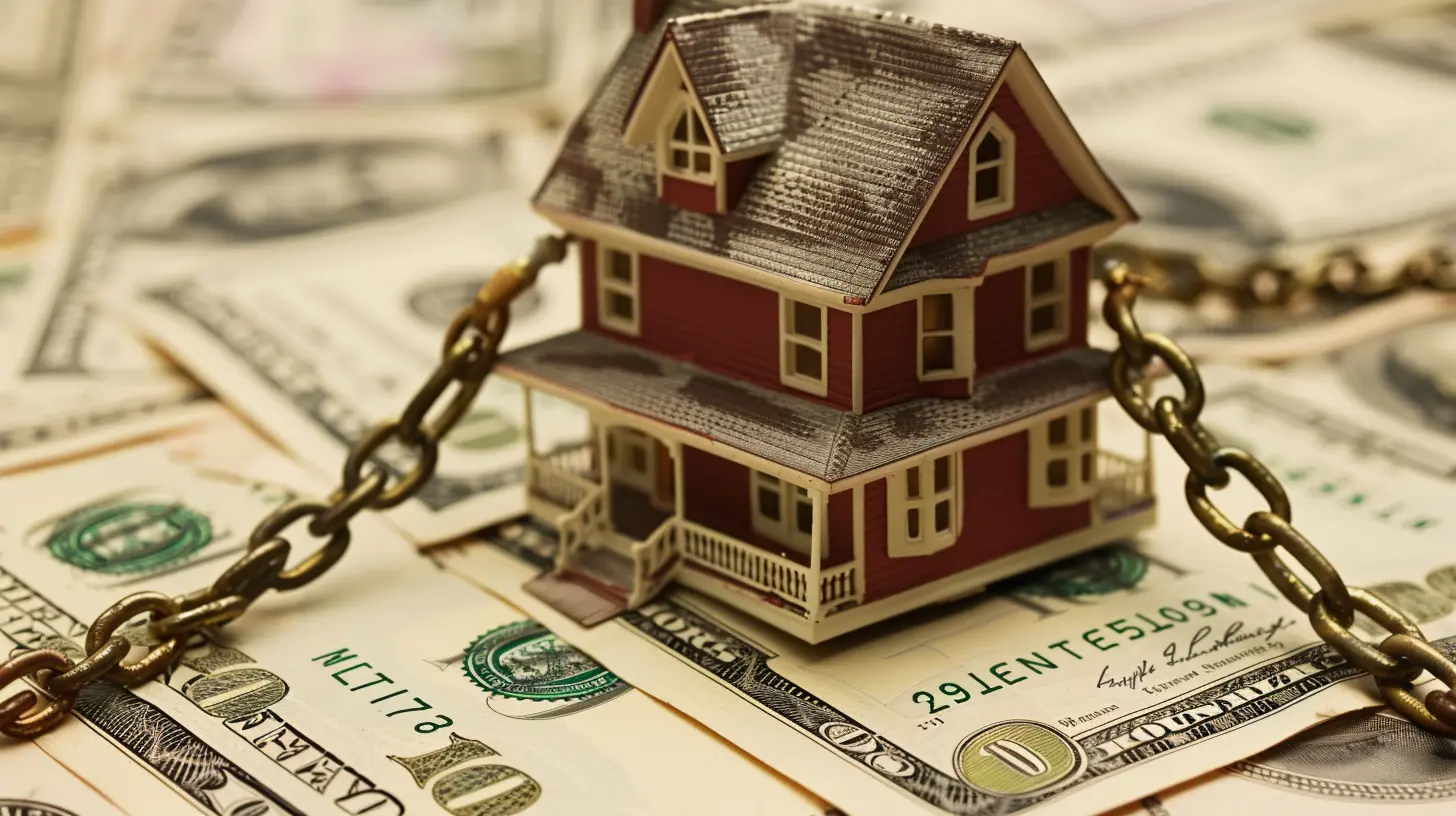The Role of Escrow in Real Estate Transactions Explained
20 October 2025
Buying a home is a thrilling experience, but let’s be honest—it’s also nerve-wracking. Between price negotiations, paperwork mountains, and those pesky hidden fees, the process can feel like an obstacle course.
But here’s the real kicker: how do you make sure your hard-earned money doesn't vanish into thin air during a deal? Enter escrow, the unsung hero of real estate transactions.
If you’ve ever wondered what escrow actually does and why it’s so important, you’re in the right place. This guide will break it all down in simple, no-nonsense terms. Let’s dive in. 
What Is Escrow in Real Estate?
Picture this: You’re buying a house, and before you hand over a massive chunk of change, you want to make sure everything is in order—inspections, repairs, legal checks, the whole nine yards. Would you give all your money to the seller upfront and just "trust" that it’ll all work out? Probably not.That’s where escrow comes in.
Escrow is a neutral third party—often a specialized company or an attorney—that holds onto the buyer’s money while the deal is finalized. Think of it like a digital vault that ensures nobody gets short-changed.
Once everything checks out and both parties fulfill their obligations, the escrow company releases the funds, and boom—home sweet home! 
Why You Need Escrow in a Real Estate Transaction
1. Protection for Both Sides
Escrow isn’t just for buyers; it protects sellers too. It ensures that the buyer’s funds are legitimate before the deed changes hands. This prevents fraudulent deals and last-minute surprises.2. Guarantees That Conditions Are Met
A real estate transaction isn’t as simple as exchanging cash for keys. There are lots of moving parts—home inspections, mortgage approvals, legal documents—all of which need to be in place before money is exchanged. Escrow makes sure nobody jumps the gun.3. Prevents Fraud & Scams
Unfortunately, scams in the real estate world are more common than you’d think. Escrow acts as a safeguard against fraud by ensuring that the money and property title are properly verified.
How Does the Escrow Process Work?
Understanding how escrow works will make the whole home-buying process a little less intimidating. Here’s a step-by-step breakdown:Step 1: Opening the Escrow Account
Once the buyer and seller agree on the terms, the buyer typically deposits their earnest money (a good-faith deposit) into an escrow account. This proves they’re serious about the purchase.Step 2: Meeting Contingencies
Before moving forward, certain conditions—also known as contingencies—must be met. These usually include:- Home inspections (to make sure the house isn’t falling apart)
- Appraisals (to verify the property’s actual value)
- Loan approval (ensuring the buyer can afford the home)
If all goes well, the process continues. If not, the buyer might walk away and (depending on the contract) get their earnest money back.
Step 3: Title & Legal Verification
The escrow agent or attorney verifies that the property title is clean—meaning there are no legal disputes, unpaid liens, or ownership confusion. This ensures you’re not buying a house with hidden baggage.Step 4: Finalizing Documents & Signing
Once everything is checked off the list, both parties sign the final documents, confirming they’re ready to roll.Step 5: Closing & Fund Transfer
The buyer’s mortgage lender transfers the payment into escrow. When the paperwork is officially recorded and approved, escrow releases the funds to the seller, and the deal is done!Just like that, the house becomes yours, and the seller walks away with their payment—safe, secure, and hassle-free. 
Common Escrow Pitfalls to Avoid
Nobody likes surprises—especially when dealing with hundreds of thousands of dollars. Here are some common pitfalls that buyers and sellers should watch out for.1. Not Understanding Your Contingencies
Missing an important contingency deadline could cost you big time. If you fail to meet a condition (like getting a mortgage approved), the seller might legally keep your earnest money. Pay close attention to the contract!2. Delays in Documentation
A missing signature or an incorrect document can throw a wrench into the entire process. Double-check every form and work closely with your escrow agent to avoid delays.3. Unverified Third Parties
Some scammers pretend to be escrow companies, tricking buyers into wiring money to fraudulent accounts. Always verify the legitimacy of an escrow company before transferring funds.4. Miscommunication Between Buyer & Seller
Lack of communication can lead to misunderstandings and delays. Make sure everyone involved—buyers, sellers, realtors, and escrow agents—are on the same page regarding timelines and responsibilities.How Much Does Escrow Cost?
Escrow services aren’t free, and they usually charge somewhere between 1% to 2% of the home’s purchase price. This fee is often split between the buyer and the seller, but it depends on the contract and local customs.While it may feel like an extra expense, remember—it’s a small price to pay for peace of mind in such a major investment.
Escrow in Refinancing—Is It the Same Process?
If you’re refinancing instead of buying, you might still need an escrow account. The process is slightly different:- Instead of holding money for a purchase, escrow ensures your new loan is properly completed before paying off the old one.
- Your lender may use an escrow account to manage ongoing property tax and insurance payments, rolling them into your monthly mortgage bill.
It’s a minor difference, but the concept remains the same—protecting all parties involved.
The Bottom Line: Is Escrow Really Necessary?
In short—absolutely. Escrow adds a layer of security to one of the most significant financial transactions you’ll ever make. It ensures that your money and property safely exchange hands while preventing fraud, misunderstandings, and legal headaches.Sure, it might feel like just another step in the already complicated home-buying process, but trust me—you’ll be glad it’s there.
So, the next time you hear someone mention escrow, you’ll no longer be scratching your head. Instead, you’ll know it’s the guardian angel of real estate deals, making sure everything is fair and square.
Happy home-buying!
all images in this post were generated using AI tools
Category:
Real Estate ContractsAuthor:

Cynthia Wilkins
Discussion
rate this article
1 comments
Colette Mercado
Great insights! Escrow is essential for smooth transactions!
October 24, 2025 at 3:36 AM

Cynthia Wilkins
Thank you! I'm glad you found the insights helpful. Escrow indeed plays a crucial role in ensuring secure and smooth transactions.


